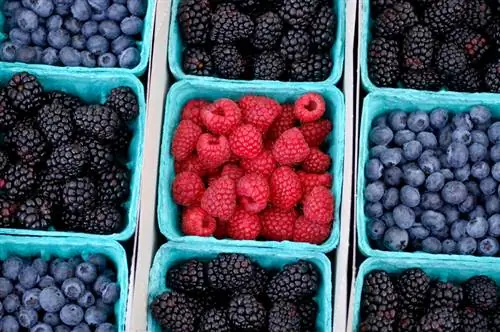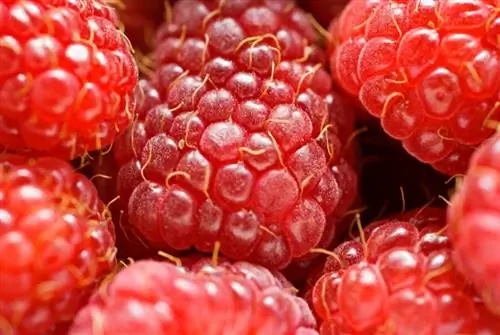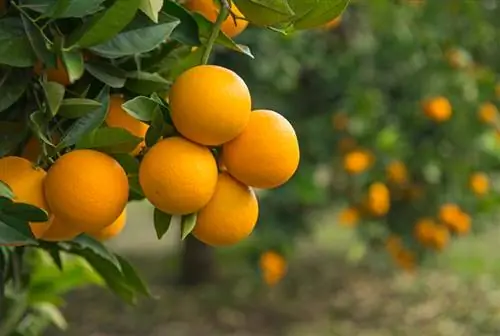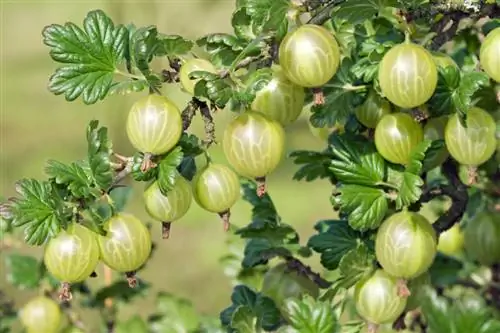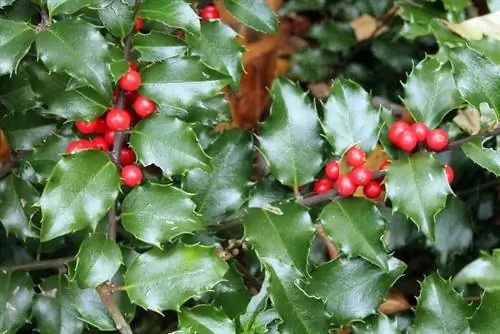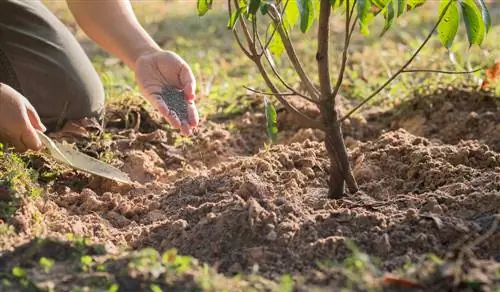- Author admin leonars@hobbygardeners.com.
- Public 2023-12-16 16:46.
- Last modified 2025-01-23 11:20.
Most berry fruit bushes can do without fertilization. The prerequisite is that the soil has been well prepared before planting. Blueberries and cranberries do not require any fertilizer at all. What you need to consider when fertilizing soft fruit.
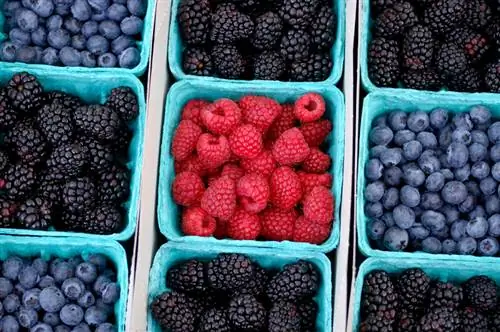
Which fertilizer is suitable for soft fruit and when should fertilizer be used?
When fertilizing soft fruit, we recommend using ripe compost, rotted manure, horn shavings or horn meal. Ideally, fertilizing should take place before flowering and not with nitrogen-rich fertilizers such as blue corn or nettle manure to avoid fungal infestation.
Prepare the soil well
The best way to provide berry fruit bushes with nutrients is mature compost. Before planting the bushes, you should loosen the soil and work in compost or well-rotted manure.
With such soil improvement, you can completely avoid fertilizing the berries.
The best fertilizers for soft fruits
If fertilizing cannot be avoided, the following fertilizers are suitable:
- Mature compost
- Rotten manure
- Horn shavings or horn meal
- Ready-made berry fertilizer (€10.00 on Amazon) from the specialist market
Stinging nettle manure is an excellent fertilizer for many plants. However, you should not treat berries with this. The manure has too high a nitrogen content. Too much nitrogen endangers the berry fruit bushes because it promotes fungal infestation.
You should only use commercially available berry fertilizer if the soil is very depleted.
Do not fertilize berry fruit bushes with blue grain
Blue grain is a chemical mineral fertilizer that contains a wide range of nutrients. These are released immediately when the fertilizer is distributed among the plants.
There is a risk of over-fertilization for berry fruit bushes. The shoots shoot up and remain thin and weak.
When should you fertilize?
If fertilization is necessary or you don't want to do without it, it should be done before the berry fruit blooms. You should generally not add any additional nutrients to blueberries and cranberries.
Some guides recommend a second fertilization before the berries begin to ripen. Experienced hobby gardeners advise against this as the fertilizer can affect the aroma of the fruit.
It is better to provide the plants with fertilizer again in early autumn. However, this must not happen too late. If fertilization is carried out shortly before frost, there is a risk that the shrub roots will sprout again and then freeze.
Tips & Tricks
A mulch made of leaves, compost or straw is ideal, especially for berry fruits. The blanket keeps weeds away and ensures consistent moisture. The mulching material decomposes over time and releases important nutrients that significantly improve the soil.

